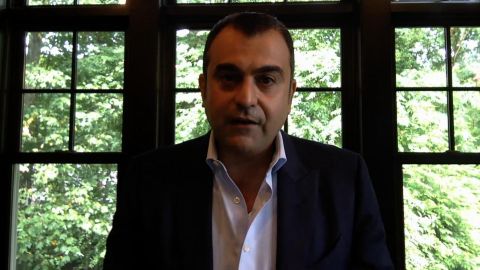Read Transcript EXPAND
CHRISTIANE AMANPOUR: So, your book, of course, is “The Tyranny of Merit.” it also sounds a little bit counter-intuitive. If you’re me sitting in, you know, class-ridden Britain, you look at the United States and you think, wow, it’s not about class, it’s about merit, and if you try hard, you can succeed. But you’re saying that that now is a false narrative, that class is one thing, but also meritocracy is not what it used to be. Tell me how you analyze the reality in that regard?
MICHAEL SANDEL, AUTHOR, “THE TYRANNY OF MERIT”: Right. There are two problems, Christiane, and one of them is that we don’t live up to the meritocratic principles that we profess at Ivy League universities in the U.S., for example, despite generous financial assistance for students from poor families, still, there are more students in these places from the top 1 percent than from the entire bottom half of the country combined. So, the opportunity to rise, individual mobility which is one of the great promises of the American dream that has attracted people around the world, doesn’t quite fit the facts on the ground. It’s harder to rise in the U.S. and in Britain than in many other places, many European countries than in Canada, that’s one problem. But there’s a deeper problem, which is the meritocratic ideal that if you work hard, you can rise, you can overcome the inequality we’ve experienced in recent decades through individual mobility. That ideal is flawed. At least, so I try to argue in the book. It’s corrosive of the common good, because it lead the successful, those who land on top, to believe that their success is their own doing and that they, therefore, deserve the bounty the market bestows on them, and by implication that those on the bottom must deserve their fate as well. And this set of attitudes, these attitudes towards success that have accompanied the growing inequality of recent decades, this, I think, accounts for the deep resentments and anger and sense of grievance by many working people who have fueled the populist authoritarian backlash against mainstream parties and governing elites.
About This Episode EXPAND
Former FBI agent Ali Soufan joins Christiane to discuss his declassified memoir “The Black Banners.” Celebrated philosopher Michael Sandel explains how meritocracy devalues the contributions of the working class. Netflix CEO Reed Hastings tells Walter Isaacson his principles in running a successful business.
LEARN MORE


